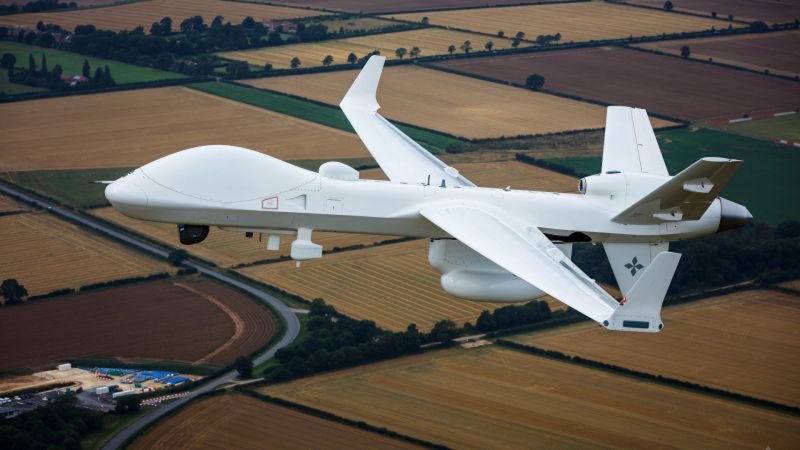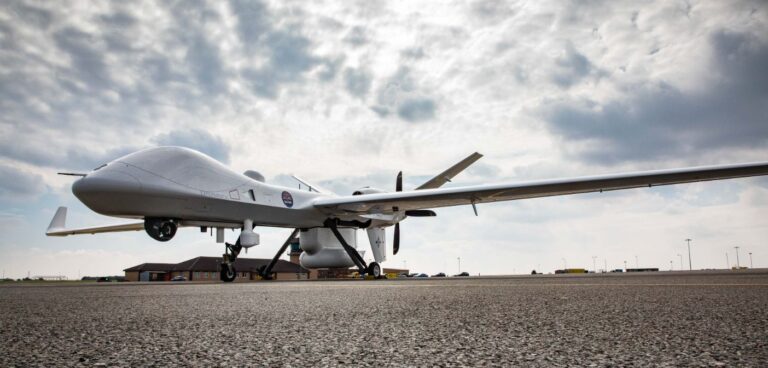A pre-production example of the UK’s new unmanned aircraft has taken to Britain’s skies, as part of preparations for the arrival of Protector to RAF Waddington.
The UK has ordered 16 Protector aircraft from General Atomics-Aeronautical Systems Inc (GA-ASI), all of which will be based at the Lincolnshire site.
Chief of the air staff, air chief marshal, Mike Wigston, said: “The Protector aircraft is a huge leap forward in performance and autonomous technology. It can fly for 40 hours anywhere in the world, providing critical surveillance and precision strike to protect the UK and our allies.
“As the lead customer for this aircraft, I am delighted the Royal Air Force is once again at the cutting edge of air power innovation.”

Investment at RAF Waddington will also include the development of a new campus, which features the Protector international training centre. Housing the synthetic training system for the aircraft, the centre will enable crews from the RAF and international partners to conduct an amount of training in a secure environment, linking in future with the Defence Collective Training environment under the UK Gladiator programme.
The remotely piloted aircraft has undertaken a number of sorties showcasing its capabilities while also providing information for personnel at RAF Waddington, preparing for the aircraft’s permanent arrival in 2024.
According to the Ministry of Defence, the £94m investment marks an important step in the development of detect and avoid technology, permitting Protector to fly in unsegregated airspace safely – as the world’s first Medium Altitude Long Endurance (MALE) remotely piloted aircraft system. Protector is designed to boost the RAF’s armed Intelligence, Surveillance, Target Acquisition, and Reconnaissance (ISTAR) capability.
The UK’s Protector programme and the investment at RAF Waddington form part of commitments outlined in the defence command paper to ensure the RAF are equipped to face future threats. This is further enhanced by the £24bn increase in defence spending over the next four years announced by the Prime Minister last November.








